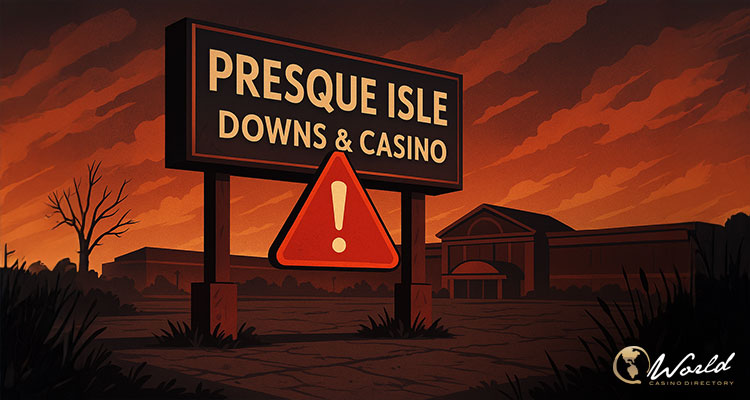Presque Isle Downs & Casino in Erie, Pennsylvania, once a reliable source of jobs and community funding, is facing mounting financial strain—caused in large part by the rapid spread of untaxed, unregulated skill games across the state.
Since opening in 2007, Presque Isle was regarded as both a major employer and an economic anchor for Erie County. But now, nearly two decades later, the casino’s leadership is warning that its long-term viability is in serious jeopardy.
Skill games drain demand and undercut revenue:
The rise of so-called skill games—slot-style terminals commonly found in bars, convenience stores, and gas stations—has siphoned customers away from traditional casinos. Presque Isle General Manager Gary Hendricks says the impact has been devastating, with demand for regulated slot machines collapsing even during peak times.
“New Year’s Eve, busiest day of the year for us. I still have about 500 games that won’t get played, because that’s how far the demand has dropped off with all these other games on the market,” Hendricks told reporters.
What frustrates operators like Hendricks even more is that these competing devices are not taxed like traditional slot machines. While Pennsylvania casinos must pay one of the highest gaming tax rates in the country—up to 64% when accounting for revenue share agreements and fees—skill games currently operate outside that tax framework entirely.
Neighboring states, including New York and Ohio, impose gaming tax rates between 25% and 43%, giving their casinos far more flexibility to attract players through promotions and incentives. According to WJET/WFXP, Hendricks warned, “Let’s say, your household income, you got taxed at 64%, you’re going to probably be trying to live a different way, right? And that’s where we are.”
Presque Isle has already made difficult decisions to cut costs. Since 2019, the casino has eliminated roughly 250 positions. Hendricks says the property now closes table games overnight and has scaled back food service, consolidating lunch operations into a single, smaller café.
However, some operations can’t be trimmed. State law requires 1,500 slot machines to be active at all times, and as a Category 1 facility, Presque Isle is legally obligated to maintain its horse racing operations—even though, as Hendricks noted, “There’s not a lot of money in racing.”
Despite repeatedly lobbying lawmakers in Harrisburg for support over the past three years, Hendricks says little progress has been made. “We’re going to get to a point where it’s the straw that’s gonna break the camel’s back,” he said.
Lawmakers acknowledge crisis but solutions stall:
In response to mounting criticism, the Erie House Delegation issued a statement affirming its commitment to keeping Presque Isle open. “We’ve passed bills to help Presque Isle that died in the senate – the same senate that wants to hand a sweetheart deal to the skill games industry,” the statement read. Lawmakers stressed that they are pushing for skill game regulation and taxation to level the playing field for casinos that generate public revenue and fund services.
Meanwhile, Governor Josh Shapiro has proposed a 42% tax on skill game profits in his February budget speech. A lawsuit by 12 Pennsylvania casinos is also challenging the tax disparity in court, arguing, “There is no basis for requiring licensed entities to pay about half of their slot machine revenue to the Commonwealth while allowing unlicensed entities to pay no tax on such revenue.”
Beyond the casino itself, local organizations and services are bracing for potential fallout. Perry Wood, Executive Director of the Erie County Gaming Revenue Authority (ECGRA), highlighted that gaming revenue has saved taxpayers $392 million to date and funded vital community services. “It gives us property tax relief through school districts. We saw last year just $18.6 million in property tax relief,” he said.
Jack Lee, a Summit Township supervisor, warned that the financial strain could eventually be felt by residents: “Will it ultimately trickle down to the taxpayer? I believe it will.”
The loss of funding would also impact institutions such as the Erie Zoo, the Erie Playhouse, and the Philharmonic, which rely on ECGRA grants to operate programs and events.


